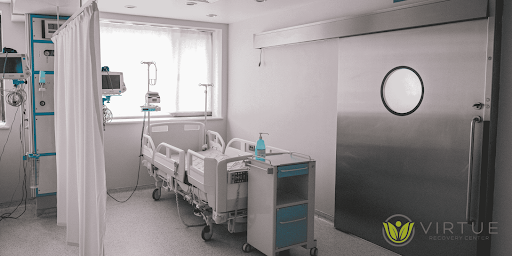Key Takeaways
- A partial hospitalization program (PHP) offers structured daytime treatment for mental health and substance use without overnight stays.
- PHPs support individuals dealing with moderate to severe symptoms, including those managing an eating disorder or dual conditions.
- Treatment includes therapy, medication management, peer support, and life skills training.
- PHPs serve as a bridge between inpatient and outpatient care.
- Participation in a PHP can build long-term recovery habits and prevent relapse.
Introduction
People with mental health and substance use problems typically need more than simply a weekly counseling session. A partial hospitalization program can be the best option when symptoms are too severe for outpatient care but don’t need complete hospitalization. During the day, PHPs offer full treatment, and at night, people can go home. These programs work best for those who need structure, support from peers, and mental health care that is all in one place. If you’re transitioning from inpatient care or require a more intensive approach than regular outpatient therapy, PHPs can significantly impact your recovery.What Is a Partial Hospitalization Program?
A partial hospitalization program (PHP) is a type of intensive outpatient care for people who have mental health problems, substance use problems, or both. During the day, patients go to scheduled treatment sessions and psychiatric appointments. At night, they live at home or in a sober living environment. PHPs are great for people who:- Transitioning out of inpatient care
- Those who need daily support to maintain mental stability
- Managing complex issues like anxiety, depression, PTSD, or an eating disorder
- Looking for help through dual diagnosis treatment near me

What to Expect in PHP?
Daily Schedule and Structure
A typical PHP day might include:- Morning check-in with clinical personnel
- Group therapy, including CBT, DBT, process groups, or trauma-focused sessions
- Individual treatment tailored to your needs
- Medication management with a psychiatrist or nurse practitioner
- Wellness activities and life skills workshops
- Peer support to build connection and accountability
Conditions Treated in PHPs
A PHP can help with several problems, such as:- Addiction and substance use
- Mood and anxiety disorders
- Bipolar disorder
- Personality disorders
- Trauma and PTSD
- Co-occurring disorders (addiction plus mental illness)
What Are the Key Benefits of Joining a PHP?
- Integrated Care: PHP treats both mental health and substance use issues at the same time.
- Consistent Support: You get daily contact with professionals and peers.
- Real-Life Application: You go home each night and practice what you’re learning in real time.
- Peer Connection: Group therapy fosters a safe space where individuals can be heard and understood.
- Flexible but Structured: It’s the best of both worlds, serious treatment without full hospitalization.
Conclusion
A partial hospitalization program is a middle ground between inpatient hospitalization and outpatient therapy. It gives people who are struggling with complex mental health and addiction issues the structure and support they need to stabilize and grow. PHPs combine multiple tools, therapy, psychiatry, group support, wellness education, and life skills to help people move forward. With the right plan in place, many individuals find that PHP is a vital turning point in their recovery journey. Call Virtue Recovery Center Las Vegas today at 866-520-2861to speak with a caring team member and find out what’s next in your recovery journey. Whether you’re facing a dual diagnosis or recovering from trauma, our PHP can help you take that next big step forward.FAQs
How long does a PHP last?
Most PHPs run for two to eight weeks, depending on progress and clinical need.Is PHP the same as inpatient care?
Not quite. PHPs offer daytime treatment, but you return home at night. Inpatient care requires 24/7 stays.Can I work while attending a PHP?
Many people take time off work or school during PHP. Programs usually run during the day for several hours.Will insurance cover it?
Yes—many insurance providers, including Medicaid and Medicare, cover PHPs when medically necessary. The admissions team can help verify your benefits.Who qualifies for a PHP?
PHPs are ideal for people who don’t need full hospitalization but do need more care than standard outpatient therapy, especially those dealing with mental health and substance use conditions together.How Does Understanding Relapse Help in Managing Expectations During a Partial Hospitalization Program?
Understanding relapse in addiction recovery is crucial for managing expectations during a partial hospitalization program. It prepares individuals for the challenges ahead, helping them anticipate potential setbacks. By recognizing that relapse can be part of the journey, patients can maintain a realistic perspective and foster resilience throughout their recovery process.
Resources & Citations
- Treatment of addiction: From pharmacologic dependence to compulsive behavior (1985) https://pubmed.ncbi.nlm.nih.gov/4059096/
- The role of protective behavioral strategies in alcohol-related outcomes among Italian college students (2024) https://pmc.ncbi.nlm.nih.gov/articles/PMC10911315/
- Neurobiologic advances from the brain disease model of addiction (2016) https://www.ncbi.nlm.nih.gov/pmc/articles/PMC4462722/









